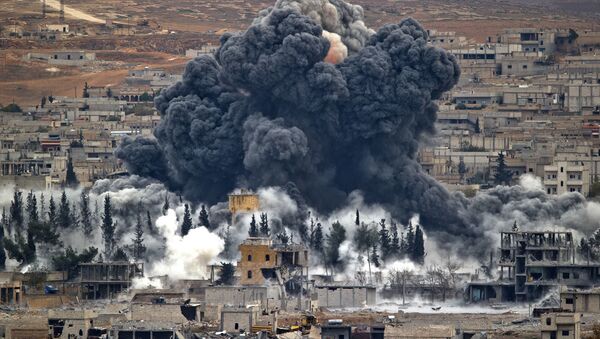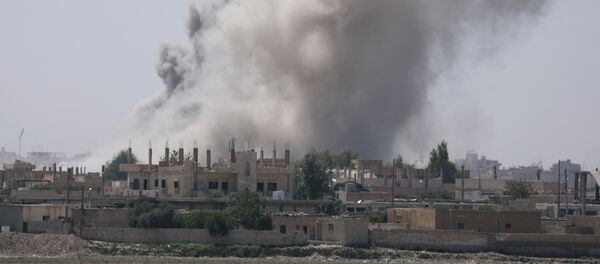The analysis, undertaken by the Council on Foreign Relations, shows CENTCOM takes an average 95 days to announce whether a coalition strike resulted in a civilian casualty, but a mere 11 days for the Pentagon to celebrate a strike killing a key terrorist target.
The figures were determined by averaging the time elapsed between military announcements in 115 cases of civilian casualties and 19 fallen terrorists.
One can only speculate as to why there is such a big discrepancy, but in the least it suggests publicizing the deaths of terrorists is a much higher priority for the US military than determining how many civilians have inadvertently been killed in the process.
How the Pentagon Announces Killing Terrorists Versus Civilians https://t.co/TfedvvS8U5
— Samuel Oakford (@samueloakford) April 24, 2017
While Pentagon officials claim all reports of civilian casualties are taken "seriously" and assessed "thoroughly" — suggesting there should be requisite surveillance and analytical resources to enable accurate and swift reporting of civilian casualties — civilian casualties reported by CENTCOM almost certainly undercut the true scale of the carnage.
Colonel Joe Scrocca has acknowledged the US military has neither the means nor manpower to conduct rigorous investigations of civilian deaths.
Three years of war have seen more than 20,000 civilian deaths from Coalition actions alleged by Iraqis and Syrians https://t.co/3qmeN4dIbg pic.twitter.com/EixsnjcLD5
— Airwars (@airwars) August 10, 2017
As the US-led coalition's airstrikes against Daesh in Iraq and Syria escalate in intensity, there has been an almost inevitable corresponding increase in civilian casualties.
Airwars estimates at least 4,700 civilians have been killed in US-led actions since August 2014, but CENTCOM perhaps implausibly assesses deaths to be closer to 230 in all 24,550 strikes.
Some sources have even suggested civilians are the primary target of US airstrikes, rather than extremist groups.
Omar al-Asad, Deputy Head of the Syrian parliament committee on foreign affairs, has said the US "kills ordinary Syrians" in "criminal acts" while "shying away" from Daesh forces, in operations that should be described as "sabotage and laying waste, not liberation."
"The Americans would've liberated Raqqa a long time ago if they wanted; they know every patch of terrain in the city thanks to their satellites," he told Sputnik Arabic.
Omar al-Asad also accused the US of perpetrating crimes against civilians in the provinces of Aleppo, Deir ez-Zor and Raqqa on a daily basis.
For example, at the start of August, coalition forces may have conducted an airstrike against a hospital in Raqqa using phosphorous bombs.
Whatever the true scale of the issue, the impact of civilian deaths on local communities cannot be doubted. As former US Air Force's deputy chief of staff for intelligence Lieutenant General Bob Otto observed in October 2015, inadvertently killing innocent men, women, and children creates a "backlash" — "we might kill three [civilians] and create ten terrorists."
As a result, it's surely imperative investigating claims of civilian harm, holding those responsible to account, and assuring past errors are not repeated is made the US forces' highest priority in all their many foreign entanglements, rather than broadcasting the "success" of slaying an apparent terrorist leader.



